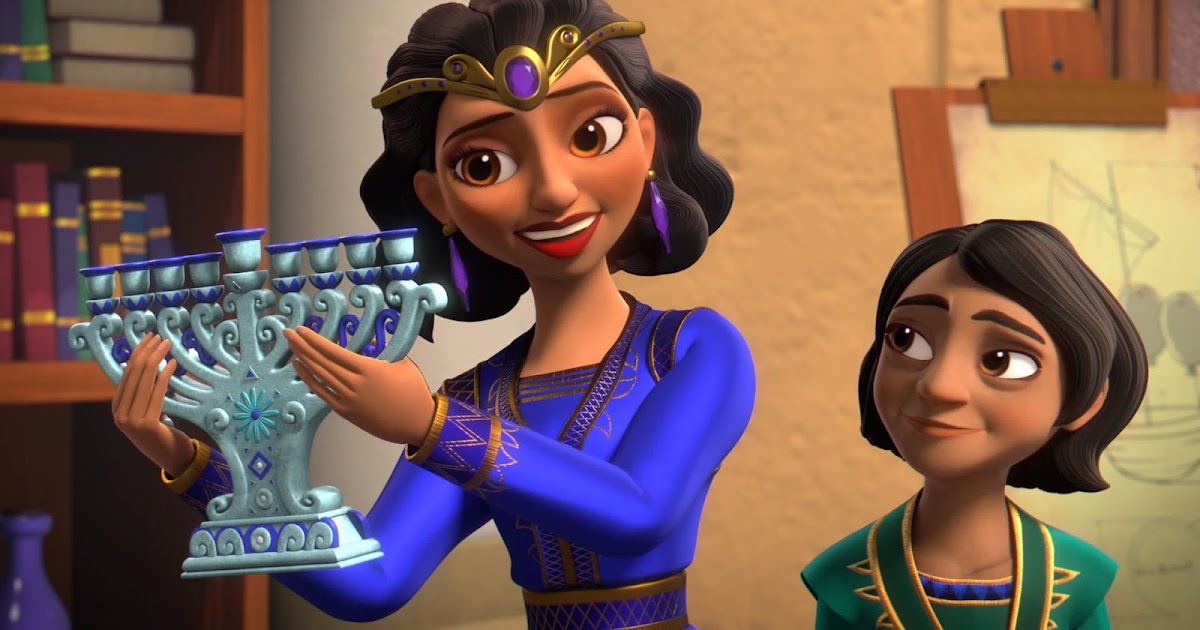Like many Latines out there, I grew up watching telenovelas with my mom and my grandma. I loved the rags-to-riches romances. You know the type – the kind of stories that made me believe that one day I, too, would find the person who would wait for me as I walked down the aisle, dressed in white while our families watched as we said “I do.” The only issue was, these weddings looked nothing like the kind I knew I’d have one day, for one very specific reason: they were all Catholic, held at a church, and officiated by a priest. At the time I didn’t think much of it, but as I got older, I came to realize that people like me, Jewish Latines, are rarely represented in Latine media.
I’m a Mexican Jew, and like many other Jews in my country and in Latin America, I rarely see the “Jewish” part of my identity represented in the TV shows, books, or movies I consume. I see the Latina, I see the woman, but I rarely see the Jewish. When I raise this concern, I commonly hear whoever I’m talking to say, “I didn’t even know there were Jews in Latin America,” but the truth is, just in Mexico alone, there’s somewhere between 40,000 and 50,000 Jews. We’re here, we exist! Even if Latine media has chosen to largely ignore Latine Jews, we’ve been here, you know for more than 500 years, coming over during the times of Conquistadores, trying to escape the Spanish Inquisition.

And in that time, we’ve made places like Mexico, Colombia, Argentina, Venezuela, and Brazil our homes. Many Latin American Jews helped build the countries we (or our ancestors) call home. Many continue to grow these places that are so near and dear to us. A quick Google search for the words “Latin American Jews” will deliver a long list of people who have — for better or worse, I’m not saying they’ve all been good — shaped our history and continue to do it today: Joanna Hausmann, Erick Elias, Tania Bíder, Claudia Sheinbaum, Emmanuel Lubezki, Rebeca Grynspan, Baruj Benacerraf, Ileana Ros-Lehtinen. And yet, their Jewish identity is one that has yet to be celebrated by Latine media and the Latine community in general.
And, yes, there have been some sporadic characters in Latine TV that are Jewish, but it’s rarely something that’s specifically mentioned — it’s almost like a secret code, that those of us who know how to decode can understand. It’s not something they’re openly proud about, unlike most Jewish Latines I know who show their Jewishness with pride.
There was Niko, in the 2004 Mexican remake of Rebelde, who had to hide his Jewishness in order to avoid being bullied. Then there’s Jana Cohen in the 2022 Rebelde reboot, who never mentions her religious background, but who’s last name is very obviously Jewish and acts like the stereotypical spoiled “Jewish Princess.” There’s Salomón Cohen (see that name again!), and while he is openly Jewish in La Casa del las Flores, he’s also a cliché: a stereotypical depiction of one specific type of Jew: the Ashkenazi, white-passing Jew. There was also the Festival of Lights episode in the Disney show Elena of Avalor, which is my personal favorite, where Princess Elena helps her friends from a Latine Jewish kingdom celebrate Hanukkah (which, by the way, is not “Jewish Christmas”).
A sock puppet probably shouldn’t be the only representations Jewish Latines get…I know there’s hope for positive change, though. In recent years, I’ve noticed the Latine community begin to celebrate the vast diversity that exists within our community. There are entire platforms, social media accounts, and publications dedicated to showing us what a beautifully diverse bunch we are. We’re starting to give each identity the place, space, and validation it deserves. I’ve learned to love the things that we all share and appreciate the things those that make us different as opportunities to grow, learn, and enrich myself.
It’s about time the media, and the Latine community start embracing Latine Jews in the same way Latine Jews have embraced (and somewhat assimilated into) the many Latine subgroups and cultures. It’s time we start seeing Ladino-speaking (or Yiddish-speaking) Jews who are as open and proud about their Latinidad as their are of their Jewish identity. I want younger Latin American folks to grow up knowing about Purim and Pesach as much as we know about Christmas, Carnaval, or Día de Muertos. I want them, regardless of their religion, to know that their identity is valid and welcome. I’m proud of my Jewish identity, as much as I am proud of my Latina identity. They’re both a fundamental part of who I am and it’s about time the media starts portraying Jewish Latines.

